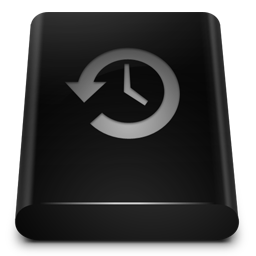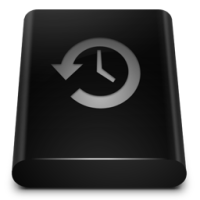It has been a little while since I have talked about data backup. I like to bring up this subject once in a while since I think it is important for everyone to understand. If you have taken many digital photos, collect your family genealogy information, or have written many work/school assignments then you probably have it stored on your computer.
The reality, unfortunately, is that if you haven’t implemented a good backup solution, or workflow, you are at risk of losing your data. Think about your data and ask yourself one question: can I stand to lose all of my data? You will probably answer “no”, so let’s look at what you need to think about when developing your backup plan.
Features of Data Backup

If you are serious about keeping your data safe, then there is a little more to backing up your files then just burning them to an optical disc. The list I discuss below may not be an exhaustive list, but it will provide several points that you need to think about when you decide to backup your data.
- Multiple Copies of Your Data
- This is the one point that everyone seems to understand. When you backup your files, you make a second copy of your data. This way if the original files are lost, you can restore the copy. When you do make copies, you should make at least two copies, not just one. If you burn your data to an optical disc (DVD or CD), there is a chance the disc could become corrupted. Making a second copy can reduce the chances of losing your data.
- Move Your Data Offsite
- This is a point that many people probably don’t think about when backing up their files. Offsite basically means moving (physically) your data to another location – away from your computer. For example, if you burn your data to an optical disc, or copy it to a USB flash drive, you should move the optical disc, or flash drive, to another location. This way if something were to happen to the location housing your original data, your backed up data is unaffected. A good solution to this is to look into backing up your data online, such as with Mozy or Carbonite.
- Use High-Quality Media
- I have seen some people using media that they bought because it was on sale or cheap. A quick word to the wise: in computers, you get what you pay for. You buy cheap, you get cheap. Don’t trust your data to low-quality, cheap media, especially when it comes to optical discs. Buy high-quality brands. For optical discs, choose Taiyo Yuden (my favourite), Verbatim, Sony or Mitsui Gold. Hard drives look into Western Digital or Seagate.
- Invest in a UPS
- No not the delivery company, a backup battery device. An uninterruptible power supply (UPS) may not help you to backup or restore your data, but it will help protect your computer and data. If you experience a power outage, your could potentially damage your hard drive if it was busy writing data. A UPS is designed to switch to it’s internal battery (charged by a wall outlet) when the power goes off, giving you a few minutes of power to allow you to close your applications and shut down your computer. They cost over $100, but are a great investment to keep your computer, and data safe.
- Develop a Backup Plan that Works for You
- I can never stress this point enough. A data backup plan is only good if you know how to implement it. You need to know how to backup your data, and make sure it meets your needs. For example, if you have a lot of data (over 100 GB), then maybe optical discs aren’t cost-effective or easy for you to use. Maybe USB flash drives, with their larger storage capacity, are a better alternative. Make sure that when you do develop a solution, it works for you.
My Backup Plan
I have been actively implementing a backup solution for years. Anyone that knows me, knows that I like to take digital photos, and having three young boys means I take a lot of photos.
I had planned on using DVD discs for backups, but have outgrown the size of such media. I currently have 180+ GB of data that I backup and currently have it stored on two external hard drives and online. My online backup service provider backs up my data automatically. Once the large capacity USB flash drives come down in prices, I will probably include those in my plan.
While you may or may not have as much data, it is important that if you have any irreplaceable data, that you develop your own data backup plan.
Now some questions to you: do you have data that you don’t want to lose? If so, have you implemented a data backup solution to keep that data safe?
